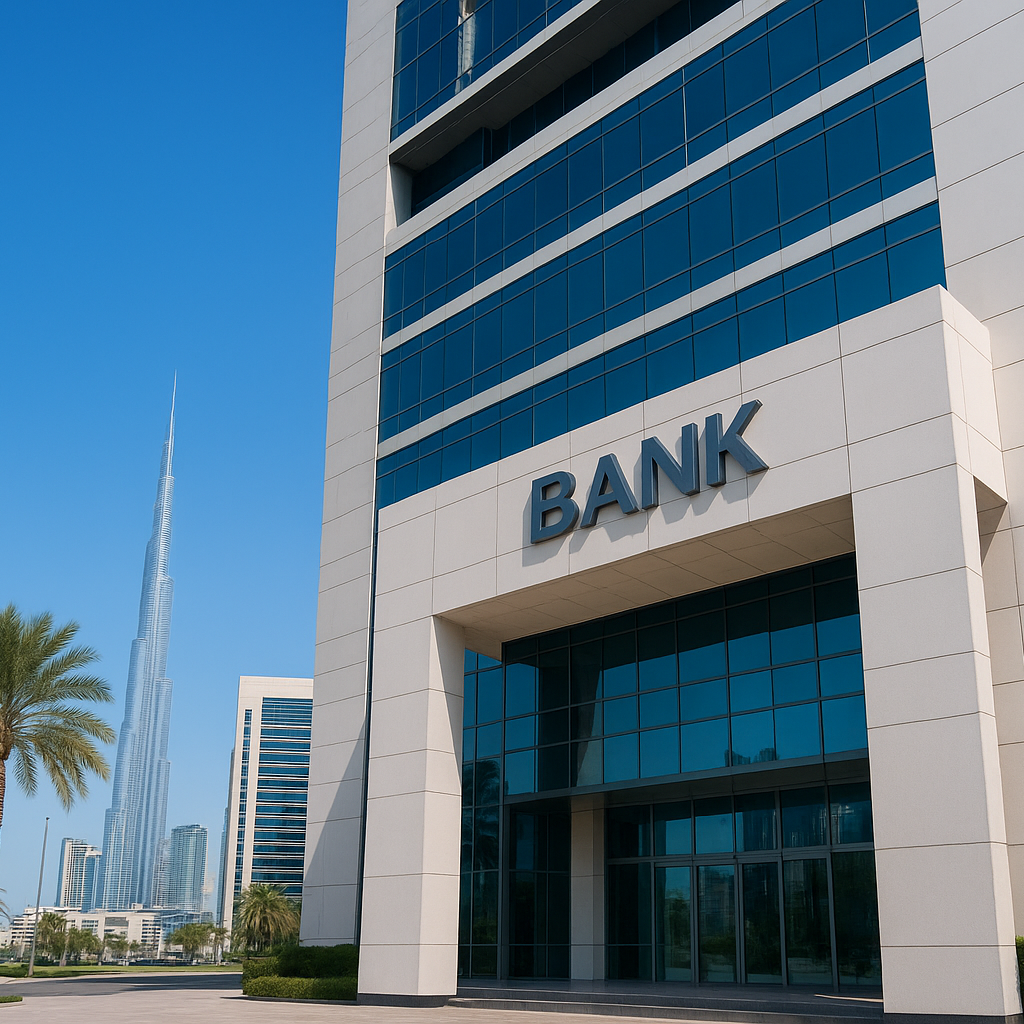UAE Business Setup Guide: The Role of Compliance and Documentation

Starting a business in the UAE is an exciting opportunity, but success depends on more than just registering a company. One of the most critical aspects of business setup is ensuring compliance with local regulations and maintaining proper documentation. From securing the right licenses to fulfilling legal obligations, compliance protects your business from penalties while building credibility with clients, investors, and government authorities. Why Compliance Matters in the UAE The UAE has established itself as a global hub for entrepreneurs and investors, offering a transparent and investor-friendly regulatory framework. However, every company whether in mainland, free zone, or offshore jurisdiction, must adhere to strict rules and regulations. Compliance ensures your business operates legally, avoids fines, and maintains a good standing with authorities. Neglecting these requirements can result in costly delays, legal issues, or even business closure. Documentation in Business Setup Proper documentation is the foundation of a smooth business setup process. Essential paperwork such as trade licenses, shareholder agreements, Memorandum of Association (MOA), and visas must be accurately prepared and submitted on time. Even after setup, businesses are required to maintain updated records, including financial statements, VAT filings, and employee documentation. Organized records not only keep you compliant but also make audits and future expansions easier. The Role of Compliance in Long-Term Growth Compliance is not a one-time task but an ongoing responsibility. Regular license renewals, labor law adherence, tax filings, and corporate governance are all part of maintaining compliance. Businesses that prioritize these aspects enjoy smoother operations, greater trust from stakeholders, and better opportunities for expansion. Compliance also demonstrates professionalism, which strengthens your reputation in a highly competitive market like Dubai. How Business Consultants Help For entrepreneurs unfamiliar with UAE regulations, navigating compliance can be challenging. This is where professional business consultants play a vital role. Experienced consultants handle documentation, government approvals, and renewals, ensuring businesses remain compliant at all times. By outsourcing these tasks, companies can focus on growth while avoiding costly errors. Conclusion Compliance and documentation are not just formalities, they are essential pillars of successful business setup in the UAE. Staying aligned with regulations builds trust, ensures smooth operations, and protects your investment. Whether you are a startup, SME, or multinational, prioritizing compliance from day one sets your business on the path to sustainable growth in Dubai’s dynamic market.
7 Proven Business Development Tactics to Win High-Value Clients

Attracting high-value clients is essential for sustainable growth in today’s competitive business world. These clients bring long-term partnerships, higher revenues, and greater credibility to your brand. To succeed, businesses must use effective business development strategies that create trust, showcase expertise, and deliver value. Here are seven proven tactics to help you attract and retain high-value clients. 1. Build a Strong Brand Presence High-value clients are drawn to businesses with authority and credibility. Invest in a professional brand identity, a strong online presence, and thought-leadership content that demonstrates expertise in your field. 2. Leverage Strategic Networking Relationships are at the heart of business development. Attend industry events, join professional associations, and engage in online communities where your ideal clients are active. Building trust through genuine connections opens doors to valuable opportunities. 3. Offer Tailored Solutions Generic services rarely appeal to high-value clients. Take time to understand their specific needs and challenges, then provide customized solutions that directly address their goals. Personalization sets you apart from competitors. 4. Invest in Content Marketing Sharing valuable content such as blogs, case studies, and whitepapers positions your business as a trusted advisor. High-value clients are more likely to engage with brands that educate, inspire, and provide actionable insights. 5. Showcase Social Proof and Case Studies Demonstrating past success builds credibility. Share client testimonials, case studies, and portfolio highlights that reflect measurable results. High-value clients want to see evidence of proven performance. 6. Strengthen Relationships Through Value-Added Services Go beyond expectations by offering additional resources, consultations, or after-sales support. Providing ongoing value creates long-term loyalty and increases referrals from satisfied clients. 7. Use Technology to Enhance Client Experience High-value clients appreciate efficiency and convenience. CRM tools, automated communication, and personalized digital touchpoints help streamline interactions and deliver a seamless experience. Conclusion High-value clients seek more than just a service or product — they look for partners who understand their vision and deliver consistent results. By combining strong branding, personalized solutions, and long-term relationship-building, businesses can stand out and attract clients that fuel sustainable growth.
How Dubai’s Strategic Location Boosts Global Business Growth

Dubai has established itself as one of the world’s most important business hubs, attracting entrepreneurs, investors, and multinational companies. Its strategic location at the crossroads of Europe, Asia, and Africa positions the city as a gateway for global trade and commerce. This unique geographical advantage, combined with world-class infrastructure, makes Dubai a prime destination for companies looking to expand their presence and tap into international markets. One of the key strengths of Dubai’s location is its connectivity. The city is home to two of the busiest airports in the world, offering direct flights to more than 200 destinations. With its state-of-the-art seaports like Jebel Ali the largest in the Middle East Dubai provides seamless access to shipping routes and global logistics networks. This connectivity enables businesses to move goods quickly and efficiently, reducing operational costs and increasing market reach. In addition to transport links, Dubai serves as a central hub for trade and investment. Companies that establish operations in Dubai gain access not only to the UAE market but also to the broader Middle East, Africa, and South Asia. This regional influence allows businesses to explore new growth opportunities while benefiting from Dubai’s pro-business policies, tax advantages, and investor-friendly regulations. Dubai’s strategic position also supports industries such as finance, technology, logistics, real estate, and tourism. Many multinational corporations set up their regional headquarters here to take advantage of the city’s global reach and thriving business ecosystem. The Dubai International Financial Centre (DIFC), for example, connects businesses to international markets while providing a secure and regulated environment. Moreover, Dubai’s government continues to invest heavily in infrastructure, free zones, and digital innovation, strengthening its role as a global business hub. With initiatives like Dubai 2040 Urban Master Plan and smart city projects, the city is set to enhance its appeal for entrepreneurs and international investors. At Czarbizserv, we help businesses unlock the potential of Dubai’s strategic advantages. From company setup and legal assistance to office space solutions and market research, our team ensures that your business can grow and succeed in one of the most connected cities in the world. If you are planning to expand globally, Dubai is the perfect launchpad. Take advantage of its unmatched location, business-friendly environment, and global connectivity to drive your company’s growth.
How to Open a Bank Account for Your Dubai Business

Opening a corporate bank account in Dubai is one of the most important steps after setting up your company. A business bank account not only helps manage finances efficiently but also builds credibility and ensures compliance with UAE regulations. However, the process can sometimes feel overwhelming for new entrepreneurs. At CzarBizServ, we simplify corporate banking solutions for startups, SMEs, and international investors. Why You Need a Corporate Bank Account in Dubai A dedicated business account is mandatory for any registered company. It allows you to: Manage company finances professionally Receive payments from clients securely Build trust with banks, suppliers, and investors Access business loans and credit facilities in the future Ensure compliance with UAE’s anti-money laundering regulations Step-by-Step Guide to Opening a Business Bank Account in Dubai 1. Choose the Right Bank Dubai is home to both local banks (Emirates NBD, Mashreq, RAKBANK) and international banks (HSBC, Standard Chartered, Citibank). The choice depends on your company’s size, nature of business, and expected transactions. 2. Prepare the Required Documents Most UAE banks require the following: Trade license and company registration documents Memorandum of Association (MOA) Passport copies and visas of shareholders and directors Emirates ID (if applicable) Business plan and expected turnover details Proof of business address (Ejari / tenancy contract) 3. Submit the Application Once documents are ready, you can apply directly with your chosen bank. Some banks may request a minimum balance requirement, which usually ranges from AED 25,000 to AED 500,000, depending on the bank. 4. Attend a Compliance Interview UAE banks often request a face-to-face interview with company shareholders or directors to verify business activity. This step ensures compliance with international banking standards. 5. Account Approval and Activation After the compliance check, the bank will approve and activate your corporate account. The process usually takes between 7 to 20 working days, depending on the bank and the complexity of your business. Tips for a Smooth Account Opening Process Maintain transparency about your business activities Choose a bank aligned with your industry (e.g., trading, consultancy, e-commerce) Work with professional business setup consultants like CzarBizserv to avoid delays Keep your company documents updated and ready Final Thoughts Opening a business bank account in Dubai is essential for smooth operations, financial management, and long-term growth. While the process can be detailed, with the right guidance, it becomes straightforward. At CzarBizserv, we assist entrepreneurs and investors with company formation and bank account opening, ensuring a fast, compliant, and hassle-free experience.
How to Build Long-Term Client Relationships Through Business Development

In today’s competitive market, business development goes beyond generating sales, it’s about building long-term client relationships that ensure sustainable growth. Companies that focus on trust, value, and personalized solutions are the ones that thrive in the long run. Why Client Relationships Matter in Business Development Strong client relationships create more than revenue, they build stability and reputation. Key benefits include: Repeat Business from loyal clients. Referrals and Word-of-Mouth Marketing at little to no cost. Stronger Market Position through trust and credibility. Essential Strategies for Long-Term Relationships 1. Prioritize Clear Communication Regular, transparent communication ensures clients feel valued and informed. Updates, feedback, and honesty build confidence. 2. Deliver Value Beyond Expectations Go beyond what is promised. Offering insights, industry updates, or innovative solutions strengthens your position as a trusted advisor. 3. Leverage Technology for Engagement Using CRM systems, automation, and digital tools helps businesses track client preferences and nurture connections effectively. 4. Focus on Personalized Solutions Every client has unique needs. Tailored proposals, flexible pricing models, and custom support drive stronger bonds. 5. Build Trust Through Consistency Consistency in service quality, delivery timelines, and ethical practices turns first-time clients into long-term partners. The Role of Business Development in Growth Business development is not just about winning new deals it’s about cultivating relationships that open doors to future opportunities. By putting client needs first and maintaining ongoing engagement, businesses create loyalty that fuels long-term success.
The Importance of Market Research Before Your Dubai Business Setup

Dubai is one of the world’s most dynamic business hubs, attracting entrepreneurs, startups, and established companies from across the globe. While the city offers countless opportunities, launching a business here without proper preparation can be risky. At CzarBizserv, we emphasize the crucial role of market research as the first step to a successful business setup in Dubai. Understanding the Market Landscape Before you invest time, money, and resources, it’s essential to understand the Dubai market. Market research provides insights into industry trends, customer behavior, competitors, and demand patterns. By analyzing these factors, entrepreneurs can make informed decisions about their business model, target audience, pricing strategy, and marketing approach. Dubai’s business environment is unique, with a diverse population, global investors, and rapidly evolving sectors like technology, real estate, tourism, and retail. Without a clear understanding of your target market, it’s easy to misjudge demand or enter a saturated niche. Identifying Opportunities and Risks Effective market research helps identify untapped opportunities and potential challenges. For instance, you may discover a growing demand for eco-friendly products or digital services, giving your business a competitive edge. Similarly, understanding regulatory requirements, cultural preferences, and economic shifts allows you to minimize risks and make strategic decisions. At CzarBizserv, we guide entrepreneurs through comprehensive market analysis, helping you understand not just the potential for growth but also the practical hurdles you may face in Dubai. Understanding Your Customers Knowing your target audience is key to business success. Market research allows you to segment customers based on demographics, preferences, purchasing habits, and expectations. This knowledge enables you to tailor products or services that meet local demand, enhance customer satisfaction, and build brand loyalty. For example, a product or service that works well in another country may require adjustments to succeed in Dubai’s multicultural market. With CzarBizServ’s expertise, you gain actionable insights to fine-tune your offering for the Dubai market. Competitor Analysis for Strategic Advantage Dubai is home to both local and international businesses, making competition fierce. Conducting competitor analysis as part of your market research helps you identify what works, what doesn’t, and how you can differentiate your brand. By understanding competitors’ strengths, weaknesses, pricing strategies, and customer engagement tactics, you can craft a unique positioning for your business. CzarBizserv assists in benchmarking competitors and finding gaps in the market that your business can fill. Making Informed Business Decisions Market research is not just a one-time step; it’s an ongoing process that informs every aspect of your business setup in Dubai. From choosing the right location to developing a marketing strategy, understanding your market ensures that decisions are backed by data rather than assumptions. With the guidance of CzarBizserv, entrepreneurs can reduce uncertainty, save costs, and increase the likelihood of long-term success in Dubai’s competitive business landscape. Conclusion Setting up a business in Dubai is an exciting venture, but success depends on preparation. Market research provides the insights needed to make informed decisions, understand your customers, and stay ahead of the competition. At CzarBizserv, we help you navigate the complexities of the Dubai market, ensuring your business is strategically positioned for growth. Start your Dubai business journey with confidence by investing in thorough market research and expert guidance.
Mainland vs. Free Zone vs. Offshore: Choosing the Right Setup for Your Business

When launching a business in Dubai, one of the most important hurdles is to make a choice between a mainland, free zone or offshore setup. However every solution has specific benefits, drawbacks and applicability based on the objective. 1. Mainland Business Setup Key Features: Businesses registered under the Department of Economic Development (DED). No restrictions on trade within the UAE market. Ability to do business with both local and international markets. Advantages:Freedom to operate anywhere in the UAE, including lucrative local markets.Eligibility to apply for unlimited employee visas.Easy to bid for government contracts and projects. Ideal For: Retail shops, restaurants, and service-oriented businesses. Companies seeking a strong physical presence in Dubai. Those wanting to engage directly with local customers and partners. 2. Free Zone Business Setup Key Features: Located in specific zones designed to attract foreign investment. Businesses are governed by their respective Free Zone Authority. Advantages:100% foreign ownership.Tax-free benefits and duty exemptions.Simplified company formation process with no need for a local sponsor.World-class infrastructure and support services. Ideal For: Export-import businesses. E-commerce and tech startups. International companies aiming to establish a regional hub. 3. Offshore Business Setup Key Features: Primarily for businesses seeking asset protection or international trading. Registered in jurisdictions like Jebel Ali Free Zone (JAFZA) or Ras Al Khaimah (RAK). Advantages:Full tax exemptions on corporate and personal income.Complete privacy and confidentiality for business operations.100% foreign ownership with no requirement for a physical office in Dubai.Ideal for holding assets, international trade, and managing intellectual property. Ideal For: Businesses focused on international markets rather than the UAE. Companies needing asset protection and tax optimization. Holding companies or special-purpose vehicles (SPVs). Factors to Consider When Choosing Your Setup Target Market: If your focus is on local UAE trade, Mainland is your best choice. For international markets, consider Offshore or Free Zone. Ownership Preferences: Free Zone and Offshore offer 100% ownership, while Mainland may require local sponsorship in some cases. Cost and Scale: Mainland setups often come with higher initial costs but offer greater operational flexibility. Free Zone and Offshore are more cost-effective for specific business activities. Business Activities: Certain activities, like retail, are best suited for Mainland, while Free Zones cater to logistics, trading, and tech companies. Offshore is ideal for international operations. Choosing the right setup for your business in Dubai depends on your goals, budget, and the nature of your business. Understanding the differences between Mainland, Free Zone, and Offshore options ensures that your decision aligns with both your immediate needs and long-term aspirations. Reach out to us today, and let’s simplify the process of setting up your business in Dubai !
Company Formation in Dubai, UAE

Company Formation in Dubai Dubai is one of the most vibrant business centers in the world, which provides investors and entrepreneurs with unmatched opportunity. It is the perfect place to launch a business because of its advantageous location, welcoming atmosphere, and top-notch infrastructure. Dubai for Company Formation Tax-Free Benefits: Zero corporate and personal income taxes in many cases. Strategic Location: A global trade gateway connecting Europe, Asia, and Africa. Ease of Doing Business: Streamlined processes and government initiatives to support businesses. World-Class Infrastructure: Access to state-of-the-art facilities and a thriving business ecosystem. Diverse Market: Opportunities across industries, from technology to real estate. Business Setup When forming a company in Dubai, you can choose from various structures like Mainland business setup in Dubai, Free Zone business setup in Dubai Dubai Mainland Business Setup UAE Allows you to operate anywhere in the UAE. Requires a local sponsor or service agent for certain activities. Ideal for businesses needing a physical presence or working with government contracts. UAE Free Zone Business Setup Operates within designated economic zones. Offers 100% foreign ownership and tax benefits. Ideal for businesses focused on international trade or services. Steps to Form a Company in Dubai Step 1: Decide on Your Business Activity Identify the type of business you want to establish. Each activity requires specific approvals and licensing. Step 2: Choose Your Company Structure Select the appropriate legal structure—mainland, free zone, or offshore—based on your needs. Step 3: Select a Business Name Ensure your business name complies with UAE naming conventions, avoiding prohibited words or phrases. Step 4: Apply for Initial Approvals Submit your application to the Department of Economic Development (DED) or the relevant free zone authority. Step 5: Secure a Business License Depending on your activity, apply for the appropriate license: Commercial License: For trading businesses. Professional License: For service-oriented businesses. Industrial License: For manufacturing businesses. Step 6: Arrange Office Space Lease an office in a free zone or mainland area, as per your business setup. Step 7: Open a Corporate Bank Account Choose a UAE-based bank to manage your company’s finances. Step 8: Register with Relevant Authorities Complete all legal formalities, including visa processing and employee registration. Benefits of Free Zones in Dubai 100% foreign ownership. No import/export duties. Simplified company setup processes. Access to modern facilities and coworking spaces. UAE Free Zone Business Setup includes: Business Setup in IFZA, Dubai Company Formation in JAFZA, Dubai Company Formation in Shams Free Zone, UAE Company Formation in Rakez Free Zone, UAE Costs of Setting Up a Company Company formation costs vary based on the business structure and location. Key expenses include: Registration fees, License fee, Office lease and Visa costs. Forming a company in Dubai is a gateway to access vibrant market and global opportunities. By understanding the requirements, selecting the right structure, and leveraging expert guidance, you can establish your business and thrive in this dynamic city. Ready to take the next step? Contact us today for professional assistance with your company formation journey in Dubai.
Embark on Your Entrepreneurial Journey: Business Setup Services in Dubai, UAE

Are you ready to dive into the vibrant business landscape of Dubai, UAE? With its strategic location, world-class infrastructure, and investor-friendly policies, Dubai has become a global hub for entrepreneurship. However, navigating the complexities of business setup can be daunting. That’s where we come in. Why Choose Dubai for Your Business? Strategic Location: Dubai’s strategic location at the crossroads of Europe, Asia, and Africa makes it an ideal base for global businesses.Tax Benefits: Enjoy a competitive tax regime, including zero corporate tax and VAT exemptions for certain industries.World-Class Infrastructure: Benefit from state-of-the-art infrastructure, including modern airports, seaports, and efficient logistics networks.Ease of Doing Business: Dubai has implemented streamlined procedures and digital platforms to facilitate business setup and operations.Diverse Economy: Diversify your business ventures across various sectors, including trade, logistics, tourism, finance, and technology. Business Setup Services in Dubai, UAE We offer comprehensive business setup services tailored to your specific needs. Our experienced team will guide you through every step of the process, ensuring a smooth and efficient experience. Key Services: Company Formation in Dubai, UAE: We assist you in choosing the optimal legal structure, whether it’s a mainland company, free zone company, or offshore company. License Procurement in Dubai, UAE: We help you obtain the necessary licenses and permits to operate your business legally. Visa and Immigration Services in Dubai UAE: We provide expert guidance on visa and immigration matters, including work permits and residency visas. Office Space Solutions in Dubai, UAE: We help you find suitable office space, whether it’s a traditional office, virtual office, or flexible workspace. Bank Account Opening assistance services in Dubai, UAE : We assist you in opening corporate bank accounts with leading banks in Dubai. Post-Setup Support: We provide ongoing support, including bookkeeping, accounting, and tax compliance services. Why Choose Us? Expertise: Our team of experienced professionals has a deep understanding of Dubai’s business landscape and regulations. Efficiency: We streamline the business setup process, saving you time and effort. Personalized Service: We tailor our services to meet your unique business requirements. Transparency: We maintain open communication and provide regular updates throughout the process. Cost-Effective Solutions: We offer competitive pricing and flexible payment plans. Take the Next Step Ready to start your business in Dubai? Contact us today to schedule a consultation. Our team will be happy to answer your questions and guide you towards achieving your entrepreneurial goals. Remember, with the right guidance and support, you can turn your business dreams into reality in Dubai, UAE.
Business Finance Management in Dubai, UAE

A Comprehensive Guide for Business Owners Navigating your business’s financials can feel overwhelming, but staying on top of your financial statements is crucial to making informed decisions. These guides provide important insights into your company’s performance, helping you develop strategies for growth and stability. In this comprehensive guide, we’ll explore three key financial statements that every business owner should know: the income statement, the balance sheet, and the cash flow statement. What Are Financial Statements? Financial statements are formal records that outline the financial activities and condition of a business. They clearly show where your money comes from and where it’s going, allowing you to make informed financial decisions. Income Statement An income statement, often called a profit and loss statement (P&L), summarizes income and expenses over a period of time, showing the profitability of your business. Main Components Revenue: Total sales from goods or services before any deductions. Cost of Goods Sold (COGS): Direct costs associated with producing goods sold. Gross Profit: Revenue minus COGS, reflecting the profit from core business operations. Operating Expenses: Indirect costs of running your business (e.g, rent, utilities, marketing). Net Income: The final profit after subtracting all expenses from revenue. How to use it Regularly analyzing your income statement can help you identify profitable areas and discover opportunities to reduce costs. This is critical for budgeting and predicting future performance Balance Sheet A balance sheet provides a snapshot of your business’s financial health at a specific moment, detailing your assets, liabilities and equity. Main Components Assets: Everything your business owns, including cash, inventory, equipment, and real estate. Liabilities: What your business owes to others, such as loans, accounts payable, and accrued expenses. Equity: The residual value of your business after subtracting liabilities from assets, representing the owners’ claim on assets. How to use it The balance sheet is critical for assessing a business’s solvency and liquidity. A strong balance sheet indicates a solid financial foundation from which to invest strategic investments and growth opportunities. Cash Flow Statement A cash flow statement tracks your business’s cash flow over a specific period of time and provides insight into your cash management practices. Main Components Operating Activities: Cash generated from core business operations, including receipts from sales and payments for expenses. Investing Activities: Cash used for acquiring or selling assets, such as equipment or property. Financing Activities: Cash received from or paid to investors and creditors, including loans and dividends. How to Use It Regularly reviewing your Cash Flow Statement helps ensure that your business maintains adequate liquidity. It allows you to anticipate cash needs and make informed decisions about spending and investments. Leveraging Financial Statements for Business Growth Understanding these financial documents is just the beginning. Here are actionable steps to harness their power for your business: Set Clear Financial Goals: Use insights from financial statements to set specific, measurable goals. Whether it’s increasing revenue by 10% or reducing costs, having a clear goal helps focus your efforts. Conduct Regular Reviews: Make it a habit to review your financial statements monthly or quarterly. This habit allows you to understand your financial health and make adjustments in a timely manner. Benchmark Against Industry Standards: Compare your financial metrics with industry benchmarks to identify areas for improvement. This analysis can reveal competitive advantages and weaknesses. Engage Professionals: Consider collaborating with an accountant or financial advisor. Their expertise can provide deeper insights and help develop strategies tailored to your business needs. Conclusion For any business owner committed to success, staying on top of your financial statements is crucial. By understanding and effectively utilizing the income statement, balance sheet, and cash flow statement, you can make informed decisions that promote growth and stability. For more insights on setting up a successful business in Dubai, check out our blog on business setup services in Dubai. Stay proactive, review your financial situation regularly, and seek professional guidance when necessary. The financial future of your business depends on it! Stay tuned to our blog Czarbizserv for more insights and updates on business regulations and best practices!
